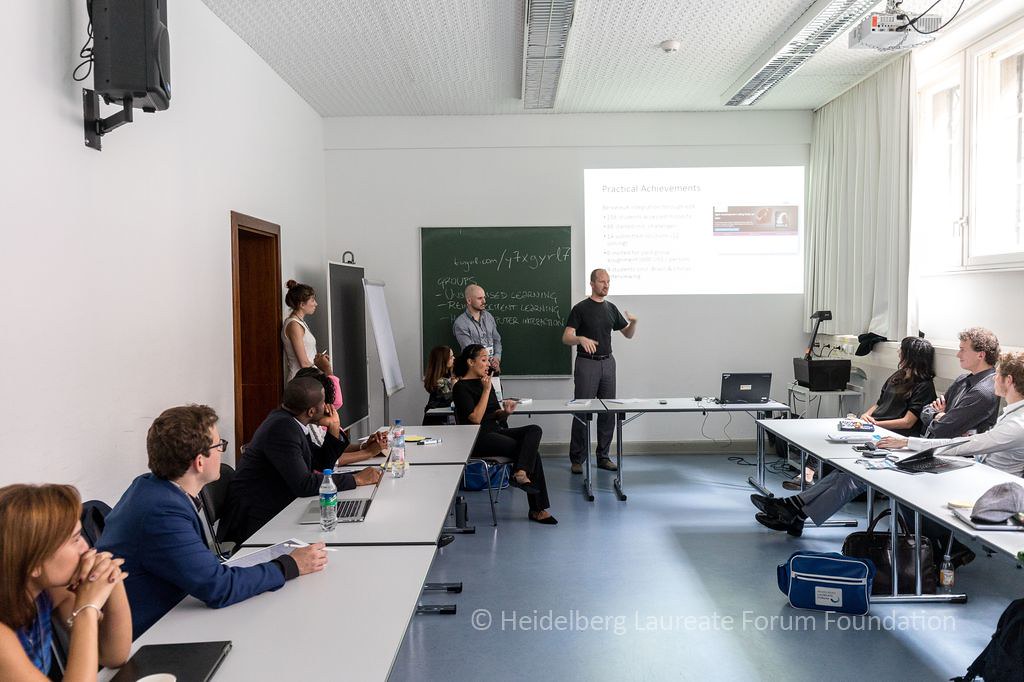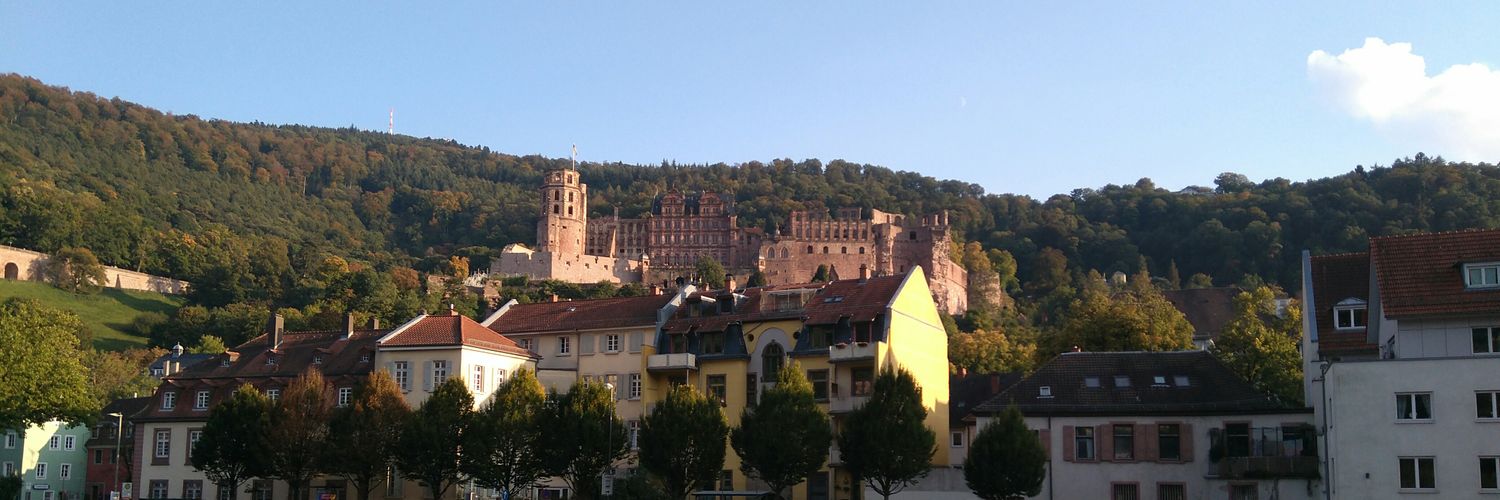This is a crosspost from: mooqita.org
The Heidelberg Laureate Forum
I was humbled and extremely excited to be selected to attend the Heidelberg Laureate Forum 2017. The event is organized by the Klaus Tschira Foundation (KTS) in cooperation with the ACM and multiple other partners. In the spirit of the Lindau Nobel Laureates Meetings the event brings together laureates from computer science and mathematics. Since the Nobel prize is not awarded in these disciplines, the event brings ACM A.M. Turing Prize and ACM Prize in Computing winners, as well as Fields Medal, Abel Prize, and Nevanlinna Prize winners together with up to 200 young researchers. Based on our prior work at the University of Bremen and our ongoing work at Berkeley I was able to - together with Markus Krause (a colleague from the Mooqita project) - attend the meeting and to engage in a once-in-a-lifetime week of intense exchange and networking.
The work at Mooqita that I support interfaces with much of what was discussed, for example regarding late-breaking work and results in the area of machine learning (ML). In the context of ML we see Mooqita as an example of a project that brings theoretical results into practical use. We strongly believe that the interaction between humans and learning and adaptive systems will be a hot topic in human-computer interaction (HCI) and we are certain that Mooqita will benefit from the strong technical backgrounds of its core team members in this topic area.
Beyond the specific applications of new methods and technologies from computer science, Mooqita also formed a perfect match to a recurring political and societal topic at the conference: the importance of offering great education to as many people as possible both in computer science, mathematics, and beyond.
Interactions with the Laureates
Intense discussions with the laureates furthered our belief in the importance of our work at Mooqita and provided great motivation to continue on our current path towards scalable affordable courses that bring education and work closer together.
Vint Cerf, one of the so-called “fathers of the internet” supported the notion that recent political developments are a call for action to further science education across society as a whole.

In an exciting in-depth discussion with John Hopcroft he underlined the importance of understandable artificial intelligence and machine learning and shared some valuable lessons-learned from his ongoing work as an advisor to the Chinese government regarding large-scale education reform. One important aspect of that work lies in aligning programs and structures along the needs and abilities of students while disempowering rigid structures in the organizational hierarchy of schools and universities in cases where they are hindering progress.
Shaping part of the technical program, I was excited to serve as a co-organizer of a workshop on “Mathematics, Computer Science, and Ethics” that was initiated by ACM Turing Prize winner Martin Hellman, who is best known for his work on public-key cryptography. As Mr Hellman underlined, the collection of detailed user data through all kinds of online devices and services at scale requires careful considerations during design and development, as well as reflection regarding the potential impact on individual users, groups of users, as well as society as a whole. He pointed out that we should stop “fooling ourselves” with regard to our true motivations if we want to be able to make ethically soud decisions. While Mooqita, like many other web applications, builds on the security and data protection protocols that Hellman’s work helped facilitate, we are also strong supporters of facing potential ethical issues up-front and of engaging in open discussion, instead of rushing on with the solution that appears most promising from a narrow technical perspective only.
Mooqita was also presented to the audience of a workshop on “Human-Computer Interaction and Machine Learning”. In this context we are currently carrying out development and research that we hope will lead to new insights on applied machine learning systems that are usable and offer a good user experience that can generalize beyond specific applications for Mooqita.

Mooqita as an organization and the broader topics that our non-profit is engaging in were also discussed at multiple occasions during our visit to the SAP Campus in Walldorf, providing us with further insights regarding the interests and needs of potential client organizations.
All in all, the HLF17 was an unforgettable experience and offered a whole week of intense debates, great insights, and positive interactions. I will be drawing motivation from my fond memories of the event for a long time to come.
I would like to thank the German Academic Exchange Service (DAAD; explicitly the program “FIT Weltweit”) and the Klaus Tschira Stiftung (KTS) for their valuable support and am looking forward to keeping in touch with many of the attendees, as well as with the organizers of the event to explore further avenues for continued collaboration.
The event is highly recommended for any qualifying young researcher in the fields.
Links
For further information regarding the event, please feel free to visit:
- the website of the event: http://www.heidelberg-laureate-forum.org
- the photo collection: https://www.flickr.com/photos/hlforum/albums
- and the different event blogs: http://www.heidelberg-laureate-forum.org/blogs/
Lastly, I would like to thank all who made this event possible and turned it into such a unique experience. Hope to see you again (someday) (soon)!
